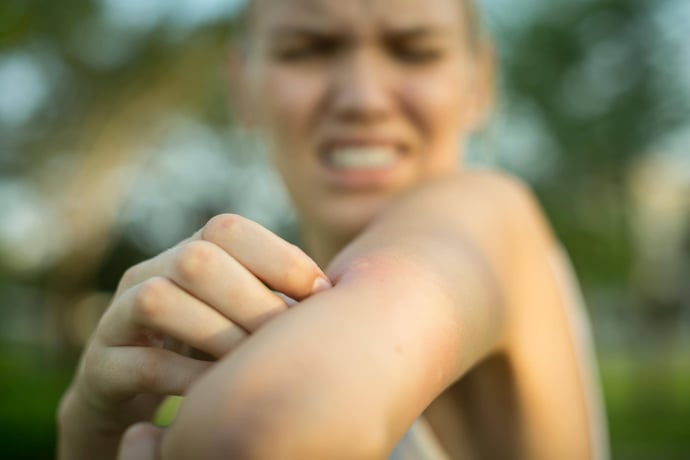Psoriasis is a common autoimmune condition that affects millions of people worldwide. Despite being a prevalent condition, there are still many myths and misconceptions about the causes and treatments for psoriasis. In this article, we'll debunk some of these common myths and provide accurate information based on medical research.
Myth: Psoriasis is contagious
Fact: Psoriasis is not contagious.1 It's an autoimmune disease caused by genetic,environmental, and immunological factors.2 It cannot spread from person to person through touch or other means
Myth: Poor hygiene causes psoriasis
Fact: Poor hygiene is not a cause of psoriasis. It's an autoimmune disease that affects the skin when the immune system mistakenly attacks healthy skin cells, triggering inflammation and cell growth. 3 Skin hygiene is necessary for overall skin health, but it does not cause or prevent psoriasis.
Myth: Psoriasis is only a skin condition
Fact: While psoriasis affects the skin, it's also linked to other health conditions.4 People with psoriasis have an increased risk of developing other autoimmune diseases, such as Crohn's disease, rheumatoid arthritis, and lupus.5 It's essential to seek medical treatment and address any underlying health issues
Myth: There's a cure for psoriasis
Fact: There's no known cure for psoriasis, but many treatments can help manage the condition.6 The treatment may vary from person to person, depending on the severity of the condition. Treatment options include topical creams, oral medications, light therapy, and biologics.7
Myth: Psoriasis is only visible on the skin's surface
Fact: Psoriasis doesn't only affect the skin's surface, but it can affect the nails and joints as well.8 Nail psoriasis may cause the nails to become thick, pitted, and discolored, while psoriatic arthritis affects the joints, causing pain, stiffness, and swelling.9
Myth: Tanning beds are an effective treatment for psoriasis
Fact: Tanning beds are not a safe or effective treatment for psoriasis.10Tanning beds can damage the skin, increase the risk of skin cancer, and worsen psoriasis symptoms. It's essential to seek medical advice from a dermatologist for safe and effective treatment options.
Psoriasis is an autoimmune condition that affects millions of people worldwide. Talk to a medical professional for treatment options and recommendations.
Sources:
- Penn State. "The Medical Minute: Clearing up common myths about psoriasis." https://www.psu.edu/news/hershey/story/medical-minute-clearing-common-myths-about-psoriasis/
- National Psoriasis Foundation. "About Psoriatic Disease." https://www.psoriasis.org/about-psoriasis
- Penn State. "The Medical Minute: Clearing up common myths about psoriasis." https://www.psu.edu/news/hershey/story/medical-minute-clearing-common-myths-about-psoriasis/
- National Psoriasis Foundation. "Comorbidities." https://www.psoriasis.org/about-psoriasis/related-conditions
- National Psoriasis Foundation. "About Psoriatic Arthritis." https://www.psoriasis.org/about-psoriatic-arthritis/
- National Psoriasis Foundation. "Treatments for Psoriatic Disease." https://www.psoriasis.org/treatments-for-psoriatic-disease/
- American Academy of Dermatology Association. "Psoriasis treatments." https://www.aad.org/public/diseases/psoriasis/treatment
- National Psoriasis Foundation. "Nail Psoriasis Fact Sheet." https://www.psoriasis.org/nail-psoriasis-fact-sheet/
- National Psoriasis Foundation. "About Psoriatic Arthritis." https://www.psoriasis.org/about-psoriatic-arthritis/
- American Academy of Dermatology Association. "Indoor tanning." https://www.aad.org/media/stats-indoor-tanning





